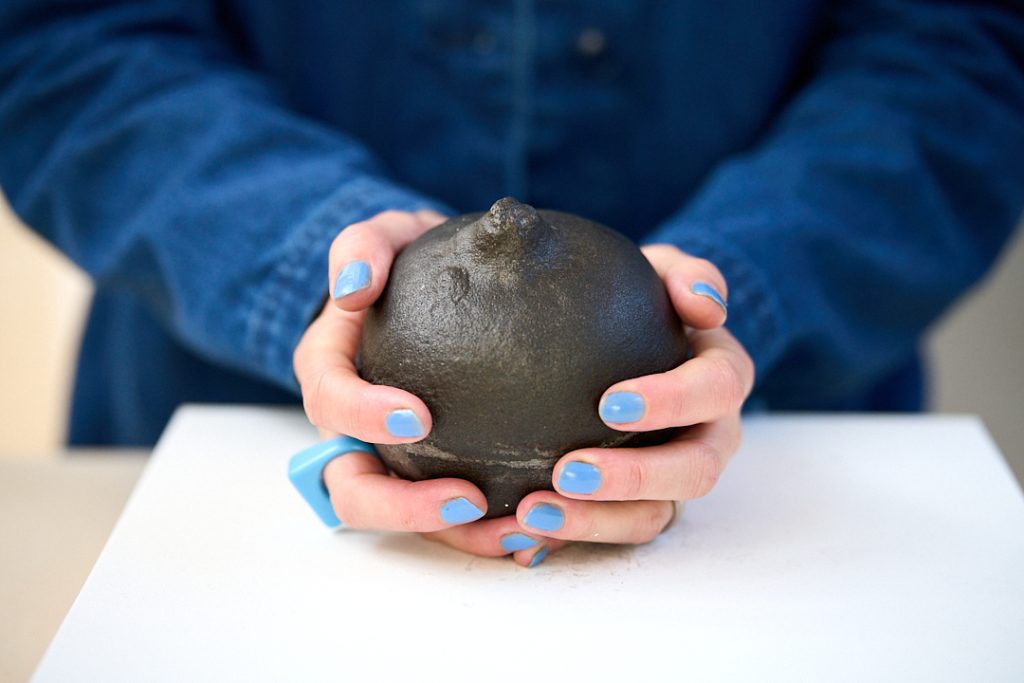
Karanjit Panesar: Furnace Fruit, exhibition at Leeds Art Gallery in partnership with the British Library. 4 October 2024 – 15 June 2025. Photography: Rob Battersby
Karanjit Panesar’s exhibition with Leeds Art Gallery and the British Library creates a delicate and timely meditation on immigration, industry and the evolution of the North’s archives.
The first thing any visitor to Karanjit Panesar’s ‘Furnace Fruit’ should do is ask to hold the pomegranate. This five-kilo ball of iron presents itself as a reference point for the rest of the exhibition – a moment of irrefutable solidity to preface Panesar’s exploration of the fragility of history and identity in relation to the stories of the Punjabi immigrants that worked in the UK’s foundries in the 1950s and 1960s.
Panesar is the second artist to have been commissioned for Collections in Dialogue, a co-commission between Leeds Art Gallery and the British Library which invites artists to engage with oral history collections at the British Library and sculpture collections at Leeds Art Gallery and the Henry Moore Institute.
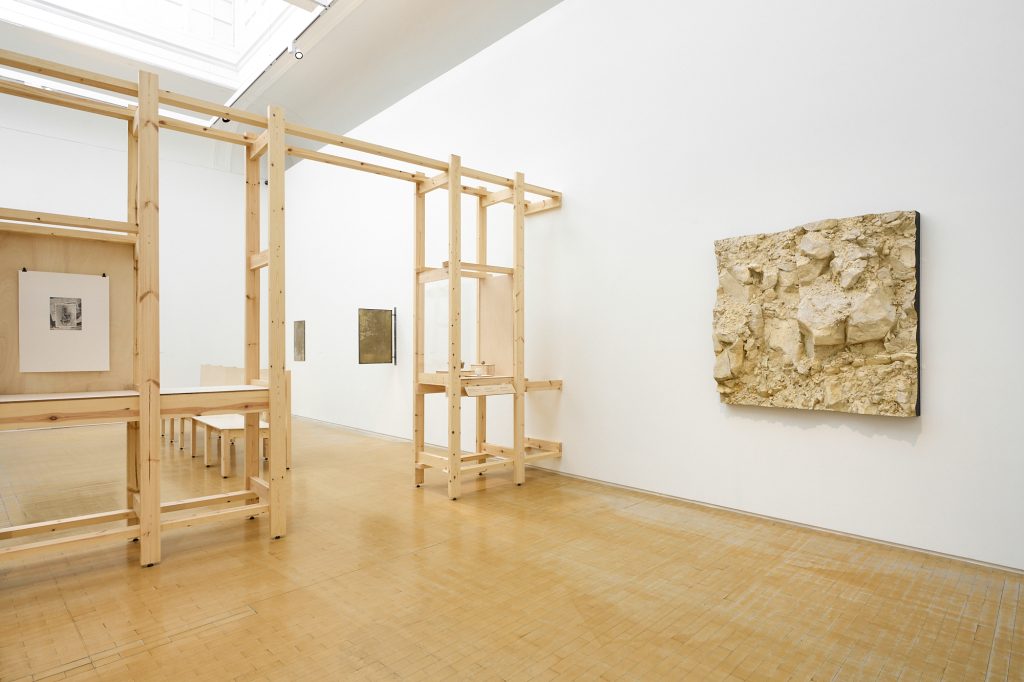
Karanjit Panesar: Furnace Fruit, exhibition at Leeds Art Gallery in partnership with the British Library. 4 October 2024 – 15 June 2025. Photography: Rob Battersby
The exhibition occupies a light-filled corner of the first floor. Walls of wooden frames display works, but also carry a clever dual reminiscence – they are both the utilitarian shelves of an archive and the casting frame that holds everything together while their molten core settles into solidity.
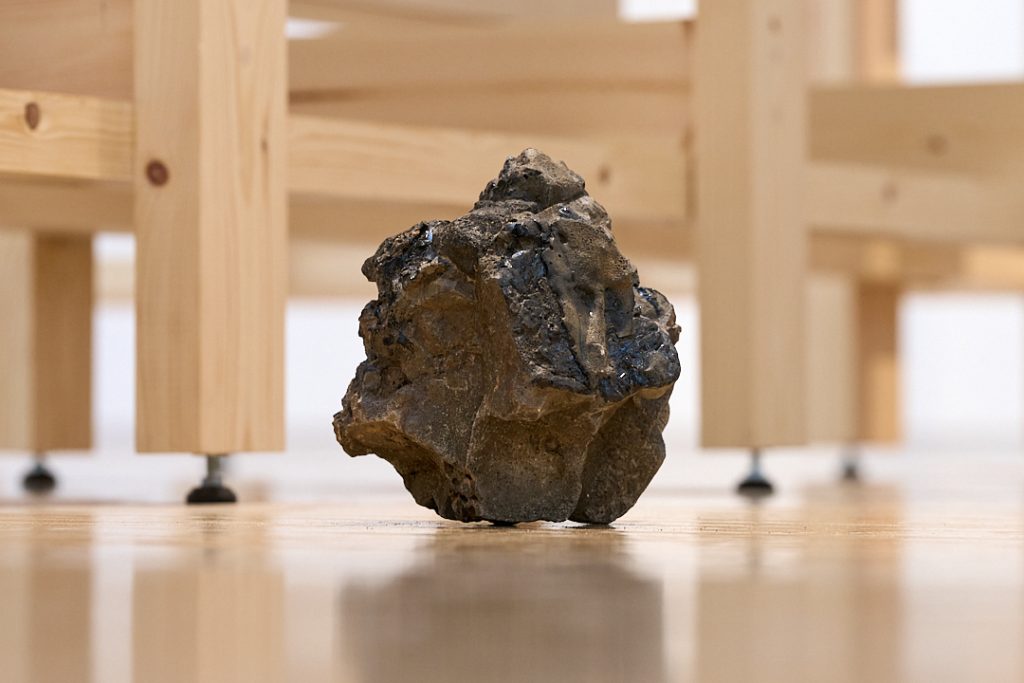
Karanjit Panesar: Furnace Fruit, exhibition at Leeds Art Gallery in partnership with the British Library. 4 October 2024 – 15 June 2025. Photography: Rob Battersby
This concern with the apparatus surrounding the objects we choose to preserve continues in the displays themselves. Moulds and sculptures, including the repeated motif of the pomegranate and metallic castings from the late modernist sculptor Bernard Meadows, are juxtaposed with sand-casting moulds from West Yorkshire Foundries. The latter look more like strange pieces of broken coral than remnants of industry and their inclusion signals an artist intent on dissolving distinctions between process and product. Instead, it is the – quite literally – granular history behind these objects, be they artworks or car parts, that bears the most fruit.
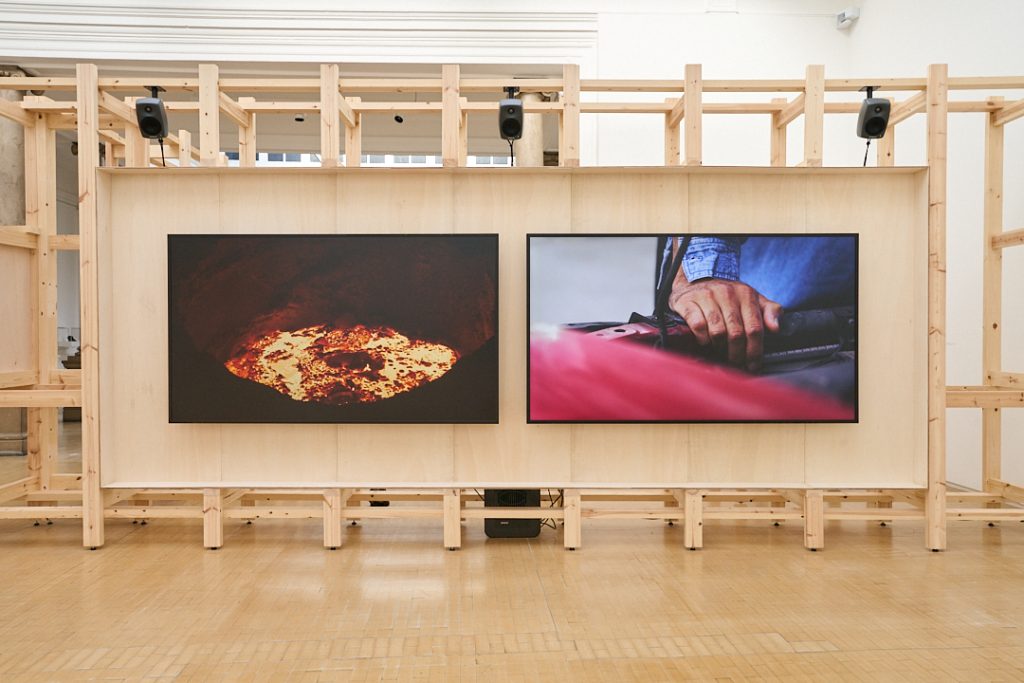
Karanjit Panesar: Furnace Fruit, exhibition at Leeds Art Gallery in partnership with the British Library. 4 October 2024 – 15 June 2025. Photography: Rob Battersby
Echoing the fragmented remain of the sand casts, the film presents a protagonist at the centre. Eyes on the road, hand on the gear stick or rummaging in the bonnet, the film uses the classic conversational catalyst of a car journey interspersed with video footage of bubbling, sparking metal in a foundry – for an exchange between the protagonist and an ambiguous paternal figure. The result is a moving reflection on the difficulty of communication between fathers and sons – a difficulty compounded by the chasms in experience, culture and language that emerge between the generations following immigration.
The film’s spoken-word style audio draws lines through Panesar’s own family to the foundry and its place in a broader history of migration and colonialism. This is also alluded to in prints of other historic foundries, such as J. W. Singer & Sons which shows employees hard at work around a bust of (what looks like) Queen Victoria. It is the sort of monument to Britain’s colonial history that has come under intense scrutiny over the past few years, but in this context seems to beg the question of whether it is the objects we preserve or the stories we tell with them that require deconstruction.
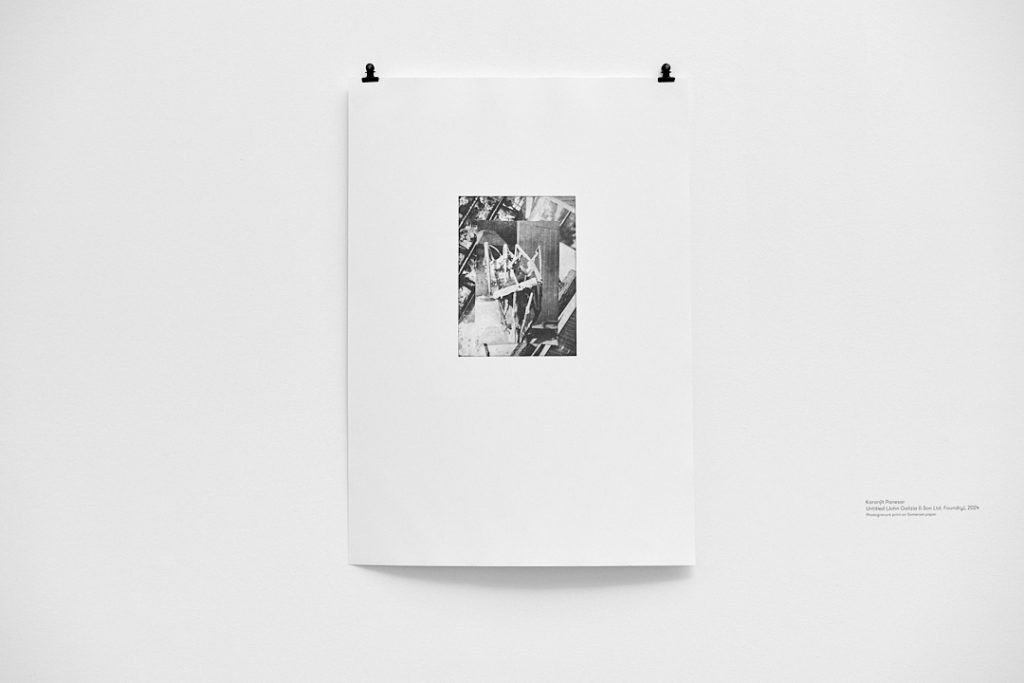
Karanjit Panesar: Furnace Fruit, exhibition at Leeds Art Gallery in partnership with the British Library. 4 October 2024 – 15 June 2025. Photography: Rob Battersby
Commissioning this exhibition is part of the British Library’s broader aim to increase its activities in the North of England. These sort of collaborative schemes makes sense given that the majority of its collections are already held at its Boston Spa Location, but since 2021 plans have also been in development for a new public space at Temple Works mill. A promising development came in March when the previous government announced an additional £10 million of funding for the project, but definitive plans are yet to be confirmed.
In the meantime, exhibitions like this are a reminder of the value of broadening access to stories, culture and art from all corners of the region’s past as we look toward its future.
Karanjit Panesar: ‘Furnace Fruit’ is a free exhibition and will be showing at Leeds Art Gallery till 13 April 2025. For more information, visit museumsandgalleries.leeds.gov.uk
Filed under: Art
Tagged with: Henry Moore Institute, Karanjit Panesar, leeds, Leeds art, Leeds Art Gallery, sculpture, The British Library, visual art
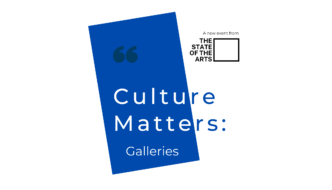

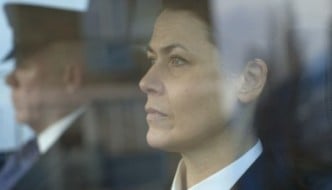
Comments